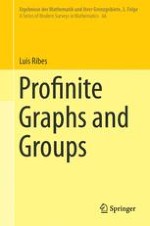2017 | OriginalPaper | Buchkapitel
11. Separability Conditions in Free and Polycyclic Groups
verfasst von : Luis Ribes
Erschienen in: Profinite Graphs and Groups
Aktivieren Sie unsere intelligente Suche, um passende Fachinhalte oder Patente zu finden.
Wählen Sie Textabschnitte aus um mit Künstlicher Intelligenz passenden Patente zu finden. powered by
Markieren Sie Textabschnitte, um KI-gestützt weitere passende Inhalte zu finden. powered by
